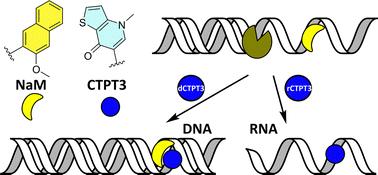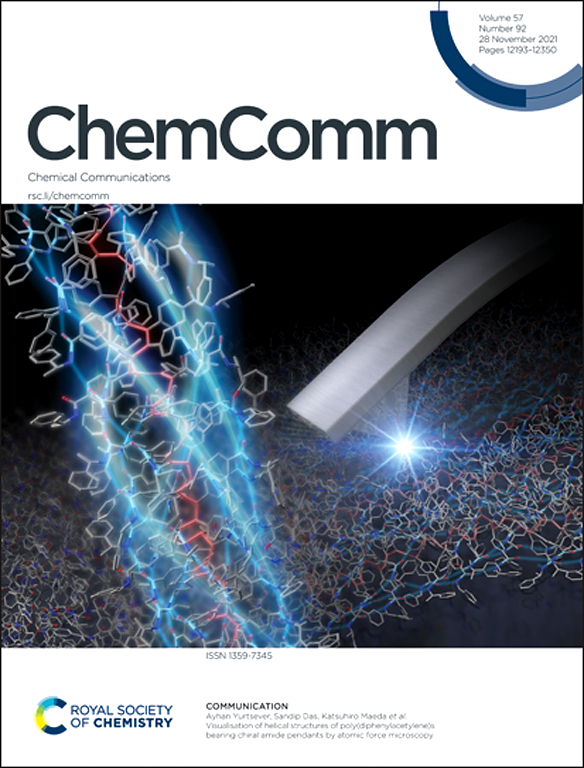用c -糖苷合成水解稳定的人工碱基对。
IF 4.2
2区 化学
Q2 CHEMISTRY, MULTIDISCIPLINARY
引用次数: 0
摘要
人工碱基对扩展了遗传字母表,并允许对特定位点进行标记,例如使用荧光团或自旋标记,从而增强了生物分子传感的能力。我们开发了CTPT3,一个稳定的c核苷配对与NaM形成疏水碱基对,并证明其酶结合到DNA/RNA和易于修饰标记。本文章由计算机程序翻译,如有差异,请以英文原文为准。

Towards a hydrolysis stable artificial base pair with C-glycosides†
Artificial base-pairs expand the genetic alphabet and allow for site-specific labeling, for example with fluorophores or spin labels, thereby enhancing the capabilities of biomolecular sensing. We developed CTPT3, a stable C-nucleoside pairing with NaM to form a hydrophobic base pair, and demonstrate its enzymatic incorporation into DNA/RNA and facile modification for labeling.
求助全文
通过发布文献求助,成功后即可免费获取论文全文。
去求助
来源期刊

Chemical Communications
化学-化学综合
CiteScore
8.60
自引率
4.10%
发文量
2705
审稿时长
1.4 months
期刊介绍:
ChemComm (Chemical Communications) is renowned as the fastest publisher of articles providing information on new avenues of research, drawn from all the world''s major areas of chemical research.
 求助内容:
求助内容: 应助结果提醒方式:
应助结果提醒方式:


